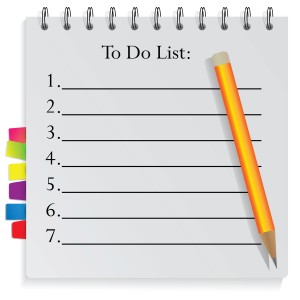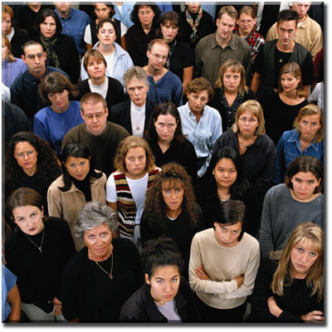When people come to see me for counsel, regardless of the reason, there is one question that almost always comes up at some point: “What should I do?”. When we have been rejected by a friend or family member, we want to know what we must do to earn their acceptance again. When we are struggling with a habit that is leading to problems for us, we want to know what we can do to rid ourselves of that behavior. When things are just not going our way, we want to know what to do to make things go our way! When facing anything that causes pain and suffering of any kind, we simply want to know what to do to change it.
The focus on self-effort was around long before self-help books even existed.
We are not the first people in this world to seek what we should be doing in order to get what we want and rid ourselves of our nagging problems.
28 Then they said to him, “What must we do, to be doing the works of God?” 29 Jesus answered them, “This is the work of God, that you believe in him whom he has sent.” (John 6:28-29, ESV)
The people in this passage had been following Jesus around for a while. They were becoming very much infatuated with the miracles they had witnessed (making a big meal of fish and bread, healing the sick, etc.). Then they asked the big question. It sounded very godly, the way they worded it. “What must we do, to be doing the works of God?” However, what they truly meant was more like this: “What can we do to achieve more things, like the miracles we’ve seen you do?” Jesus’ response likely baffled them. Instead of telling them what things they should be doing, He simply stated that the work they should be focused on was trusting Him. Jesus highlighted “faith” as the important thing to focus on, not behaviors they should change or new things they should add into their routine.
We love things to do.
As a whole, those of us in church settings love to be busy. We routinely have many committees set up and activities planned. These things are not inherently bad. In fact, many of these things are important in reaching out to others, connecting, meeting needs, and allowing people to enjoy getting involved and using their God-given talents in a fulfilling way. However, many times we overdo it. Having something to do gives us a false sense of control. We wind up initiating far more than is necessary, busying ourselves with many to-do lists. We eventually lose the joy in doing those things we plan, and it all becomes a chore. We find ourselves tired, hurt, and even angry. Then, we might even feel guilty for feeling those ways!
What we need is less about doing, and more about trusting.
“What should I do?” is not the most helpful first question to ask, even in the pit of despair. Much better questions to ask are, “How can I trust God in the midst of this?” or “What might God be doing in this situation?”. Both of these questions focus on what Jesus was stressing to His followers in John 6. He wanted them to realize the need to rely on trusting Him, while forsaking the reliance on self-effort (things they could do). Of course, action is important. The Book of James stresses the need for action, but it is always in response to faith. When we ask the question of what to do without first relying on trusting Him, we bypass the only thing that can set us free.
Actions based on trust are much more fulfilling than actions based on…well, anything else.
Since faith is what truly pleases our Father (Hebrews 11:6), we are free from trying to please Him by striving to do more. And because faith is what truly sets us free in Christ, we can find freedom from anything in this world that threatens to bind us up in feelings of anxiety, frustration, and hopelessness. Something that sounds so simple is not always so easy to live out. While a focus on doing makes us feel like we are in control, faith requires us to surrender control. That loss of control can be very scary. However, it is much more productive to struggle with trusting Him than to struggle with trying to identify and carry out plans of action that never seem to measure up.











